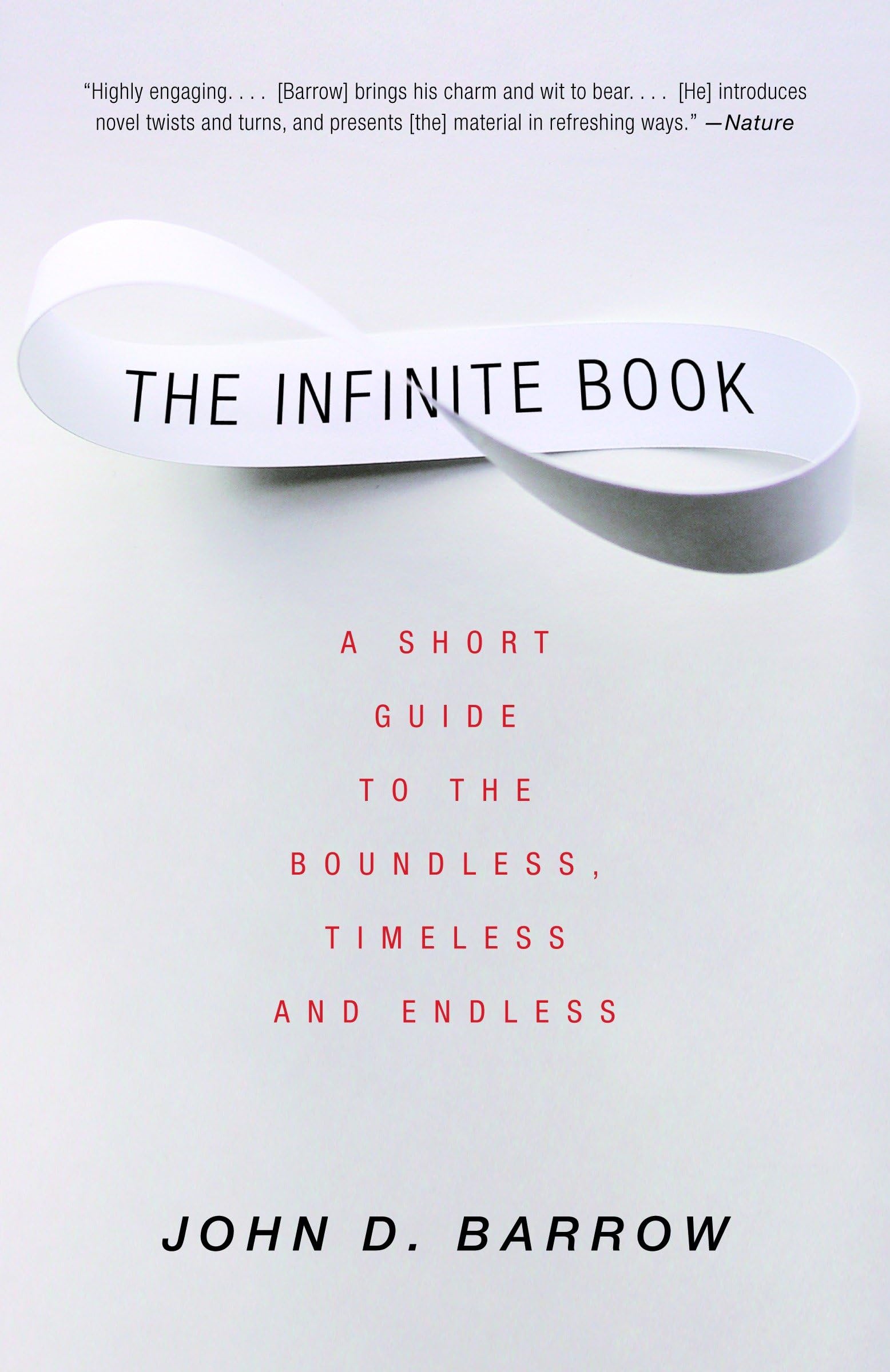For a thousand years, infinity has proven to be a difficult and illuminating challenge for mathematicians and theologians. It certainly is the strangest idea that humans have ever thought. Where did it come from and what is it telling us about our Universe? Can there actually be infinities? Is matter infinitely divisible into ever-smaller pieces? But infinity is also the place where things happen that don't. All manner of strange paradoxes and fantasies characterize an infinite universe. If our Universe is infinite then an infinite number of exact copies of you are, at this very moment, reading an identical sentence on an identical planet somewhere else in the Universe. Now Infinity is the darling of cutting edge research, the measuring stick used by physicists, cosmologists, and mathematicians to determine the accuracy of their theories. From the paradox of Zeno’s arrow to string theory, Cambridge professor John Barrow takes us on a grand tour of this most elusive of ideas and describes with clarifying subtlety how this subject has shaped, and continues to shape, our very sense of the world in which we live. The Infinite Book is a thoroughly entertaining and completely accessible account of the biggest subject of them all–infinity. “Highly engaging. . . . [Barrow] brings his charm and wit to bear. . . . [He] introduces novel twists and turns, and presents [the] material in refreshing ways.”– Nature "Eloquent. . . . Succinct. . . . Barrow [has the] remarkable ability to provide clear, concise, engaging and distinctly finite explanations–even when describing some fairly advanced concepts. . . . [An] engaging read."– San Francisco Chronicle "Clever and insightful. . . . [A] lively history of infinity through the ages."– Entertainment Weekly “Entertaining. . . . Remarkably lucid and not the least mind-boggling. . . . His clear, engaging style manages to illuminate abstruse matters.... This is a useful guide to an endlessly fascinating subject.” – American Scientist John D. Barrow is Research Professor of Mathematical Sciences at the University of Cambridge. He is the author of several bestselling books, including Theories of Everything and Impossibility. chapter one Much Ado about Everything ‘On a clear day you can see forever.’ –Alan Lerner THE ROUGH GUIDE TO INFINITY ‘If there is a Universal and Supreme Conscience I am an idea in it. After I have died God will go on remembering me, and to be remembered by God, to have my consciousness sustained by the Supreme Conscience, is not that, perhaps, to be immortal? – Miguel de Unamuno There is something about infinity and books. Never-ending stories, libraries that contain all possible books, books that contain everything that has ever happened, and everything that hasn’t; books that write themselves, books about themselves, books about there being no books, and books that end before they’ve begun. So you should be no more surprised to find yourself reading a book about infinity than I am to be writing one. But for something that you can’t buy on the internet, ‘infinity’ is strangely ubiquitous. It turns up in church sermons, mathematics lectures at all the best universities, popular science books about ‘Life, the Universe and Everything’, and mysticism the world over, while historians remind us that people have been burnt at the stake for talking about it. It is at once the staple of the mystic contemplation of reality – ‘make me one with everything’ as the mystic said to the hamburger vendor – and the familiar territory of science fiction and fantasy. Can all these things really be connected? Is infinity really that big? For thousands of years in the West there was no more seditious idea on Earth than that of infinity. The idea that things might go on and on forever, that they need have neither beginning nor end, neither centre nor boundary, was contrary to the wisdom of the West. It threatened to displace God Almighty from His uniquely infinite status, to demote the Earth from the centre of the Universe, and destroy the uniqueness and special meaning of every event in creation. It had the potential to make what was once merely the possible become inevitable. Yet the temptation to think that way was strong and simple. Once you start doing something over and over again it’s not too hard to imagine what it would be like never to stop. Infinity is just one thing after another. And this tantalising mixture of simplicity and sophistication remains with us today. Infinity is a subtle idea to capture precisely and easy to throw into the dustbin of wishful thinking, but for the ordinary person in the street it is less surprising and more readily intelligible than any comparable abstraction. We are immune to its subtleties; protected by a strange familiarity inbred by religious traditions, or from just staring out at the dark night sky; convinced by our method of counting that there could never be a biggest number. If in doubt just add one. Or can you













